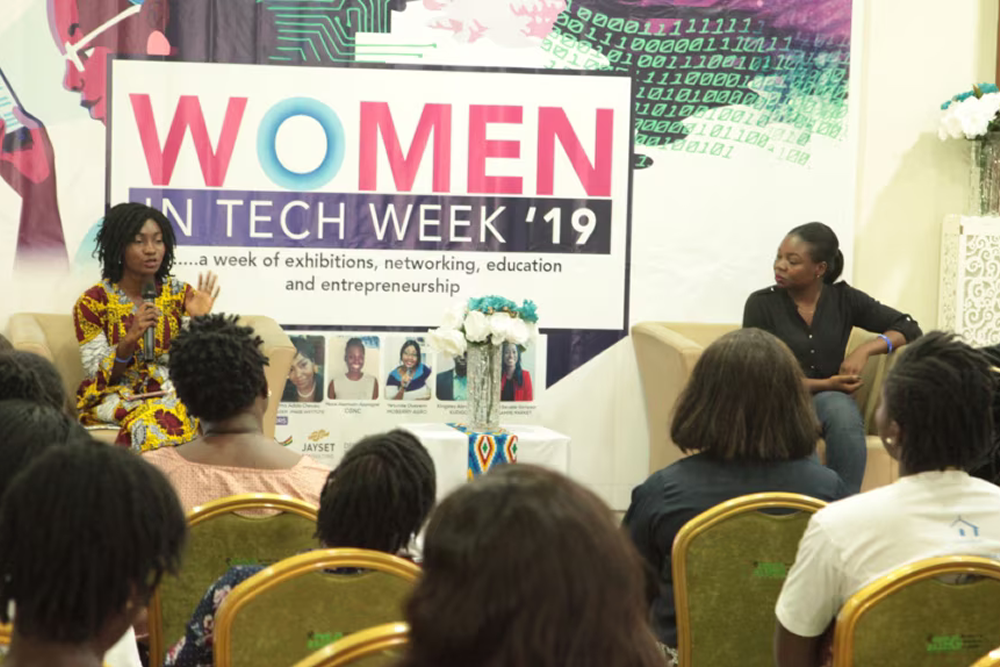NEWS
General News - African Women in Tech Look to Artificial Intelligence

Artificial intelligence took center stage as African female technology experts met at Women in Tech Week in Ghana to promote women's involvement in the field.
When Lily Edinam Botsyoe was studying computer science at a university in Ghana, students wrote programming codes on a whiteboard because there were not enough computers. This made it difficult to apply the coding skills they were learning, she says, and the problem continues today.
"We have students coming out of schools having the theoretical background — which is very important because you can't actually appreciate something practical if you don't have the theory. But, the industry-ready skills is lacking because they didn't have the hands-on experience," Botsyoe said.
She wants to see more resources for students, especially for girls and women, to get practical experience in technology in Ghana and across Africa.
Today, Botsyoe is a system tester and works to mentor other women in coding and artificial intelligence.
Botsyoe presented at the Women in Tech Week in Accra, along with her colleague, data scientist Aseda Addai-Deseh.
They explained to participants what artificial intelligence is, how it works and, most importantly, how it can be used and developed by African women. Such uses include helping a community overcome a lack of health professionals, or increasing agricultural yields with automated farming.
For Addai-Deseh, the potential for AI in Africa is boundless.
"Africa is the next market because there are so many problems here to be solved, and when you have so many problems, you have so many opportunities," she said.
Addai-Deseh says while more Africans are taking notice of AI, the majority of the industry is in North America, Europe and Asia, and is largely male.
She wants to see more investment into developers across the continent — especially in women.
AI concerns
Real estate agent Maya Yiadom was watching the two women's presentation.
While excited about AI's potential, she is also concerned about technology replacing jobs in Africa, where many nations already suffer high unemployment.
"Work as we know it is going to change and I'm not sure, millions, possibly billions of us already, how are we going to survive?" Yiadom said.
The focus on artificial intelligence at the Women in Tech Week comes six months after U.S. technology giant Google opened an AI lab in Ghana — the first in Africa.
Developers at the lab will focus on creating products for education, health and agriculture to solve problems in Africa.
